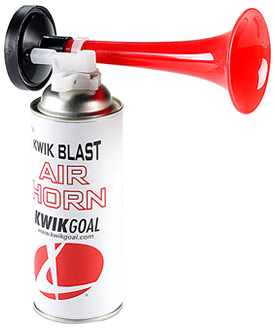skip to main |
skip to sidebar
Effects of noise pollution
Human health: Noise pollution disturbs our health and behavior in a number of ways including deafness causing lack of sleep, irritability, indigestion, heartburn, high blood pressure, ulcers, and heart disease. Just one noise explosion from a passing truck drastically alters our endocrinal, neurological, and cardiovascular functions in many individuals. If this is prolonged or frequent, the physiological disturbances become chronic and contribute to mental illness.
Annoyance: Sometimes, even low levels of noise are irritating and can be frustrating, and high volumes can be annoying. Natural sounds are less irritating than those we find uncontrollable but intermittent sounds such as a tap dripping water can be more irritating than the sound of falling rain.
Speech interference: Noise more than 50dB can be very difficult to hear and interpret and cause problems such as partial deafness.
Sleep interference: Very high levels of noise can wake people from their sleep with a jerk and keep them awake or disturb their sleep pattern. This could make them irritable and tired the next day.
Decreased work performance: Increased noise levels gives rise to a lack of concentration and accuracy at work, and reduce one’s productivity and performance. Difficult tasks can be impaired, and instructions or warnings difficult to be heard and interpreted, causing accidents.


Sources
 The prevailing source of artificial noise pollution is from transportation. In rural areas, train and airplane noise can disturb wildlife habits, thereby affecting the manner in which animals in areas around train tracks and airports hunt and mate. In urban areas, automobile, motorcycle, and even entertainment noise can cause sleep disruption in humans and animals, hearing loss, heart disease (as a result of stress), and in severe cases even mental instability.
The prevailing source of artificial noise pollution is from transportation. In rural areas, train and airplane noise can disturb wildlife habits, thereby affecting the manner in which animals in areas around train tracks and airports hunt and mate. In urban areas, automobile, motorcycle, and even entertainment noise can cause sleep disruption in humans and animals, hearing loss, heart disease (as a result of stress), and in severe cases even mental instability.
The source of most outdoor noise worldwide is transportation systems, including motor vehicle noise, aircraft noise and rail noise.Poor urban planning may give rise to noise pollution, since side-by-side industrial and residential buildings can result in noise pollution in the residential area. Indoor and outdoor noise pollution sources include car alarms, emergency service sirens, mechanical equipment, fireworks, compressed air horns, grounds keeping equipment, barking dogs, appliances, lighting hum, audio entertainment systems, electric megaphones, and loud people.
With the modern world so dependent on and enchanted with noise-producing and noise-related technology—automobiles, aircraft, helicopters, motorcycles, snowmobiles, jet skis, leaf blowers, amplified music, bass-driven car stereo systems—the ambient noise level is rapidly accelerating. Traffic noise, especially aircraft noise, is the major source of annoyance calling for better federal regulation within the United States. Noise from snowmobiles, jet skis, and supersonic jets has also intruded on the environment, affecting animals' abilities to communicate, protect their young, and mate. Examples of sources:






Definitions
Noise pollution (or environmental noise) is displeasing human, animal or machine-created sound that disrupts the activity or balance of human or animal life.
Noise pollution is a type of energy pollution in which distracting, irritating, or damaging sounds are freely audible. The definition of noise pollution is open to debate, and there is no clear border as to which sounds may constitute noise pollution. In the most narrow sense, sounds are considered noise pollution if they adversely affect wildlife, human activity, or are capable of damaging physical structures on a regular, repeating basis. A sound may be considered noise pollution if it disturbs any natural process or causes human harm, even if the sound does not occur on a regular basis.
Noise pollution is the intrusion of unwanted, uncontrollable, and unpredictable sounds, not necessarily loud, into the lives of individuals of reasonable sensitivities. Noises are especially bothersome at night when one is trying to sleep, and a good night's sleep is vital to good health.
.jpg)










.jpg)